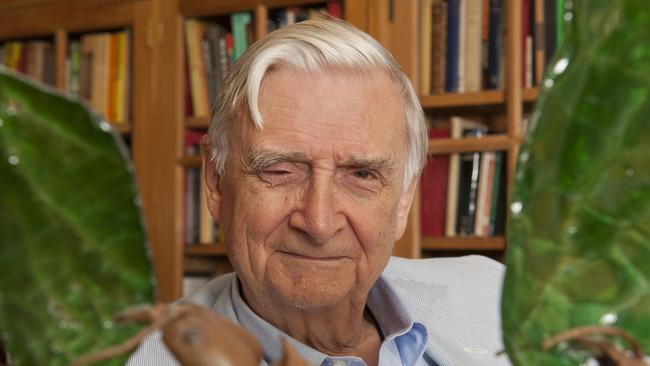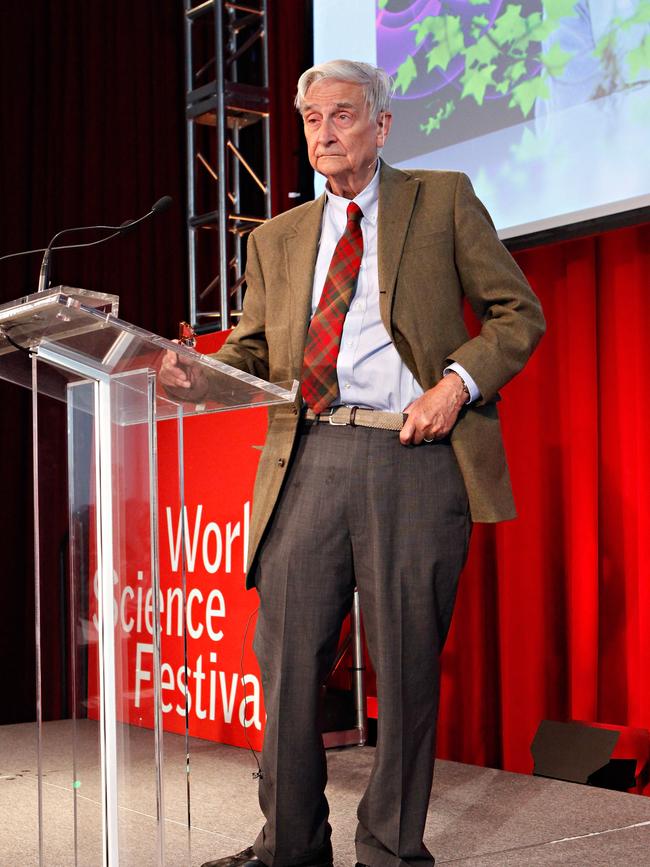
Wilson revolutionised the study of biology, applying Charles Darwin’s insights to the study of ants and their social behaviour.
The winner of two Pulitzer prizes and many science prizes, Wilson also suffered a campaign of vicious vilification in his lifetime and was physically attacked for his work – an early precursor of today’s cancel culture.
The story of Wilson’s vilification remains a cautionary tale for brilliant scientists looking to find a home in academe, as the ideological attacks on scholarship that he was subjected to in the 1970s have not dissipated; in many ways they have persisted and intensified.
When thinking of ideological attacks on evolutionary biology we often conjure up images of religious fundamentalists and creationists battling with figures such as Richard Dawkins in public debates and on television panels.
But we would be mistaken if we thought the most pernicious attacks on evolutionary biology came from the religious right. While evangelicals in the US have obstructed the teaching of evolution in schools, they mostly have avoided interfering with biological research itself.
Instead, the most insidious and undermining attacks on open inquiry in the field have come from the far left, and they have emerged from inside the academy, from activists embedded in the disciplines.

In 1975, after the publication of his groundbreaking book Sociobiology: The New Synthesis, Wilson was targeted by a group of his peers in what was perhaps the first episode of academic cancel culture. In the New York Review of Books a group of academics and students published an open letter titled “Against Sociobiology”, arguing that sociobiology was a form of “biological determinism” that justified the status quo, while invoking images of forced sterilisation and the gas chamber.
Wilson’s crime had been to suggest that the principles of evolution be applied to the study of human nature. The denunciatory letter did not bother to quote Wilson or his book once, it simply smeared him based on a distorted interpretation of his work.
The author of the letter was purported to be Elizabeth Allen, a pre-med student, but it was co-signed by eminent Harvard biologists Richard C. Lewontin, and Stephen Jay Gould, who were Wilson’s peers and who shared office space with him. These scholars were respected within their fields and had public profiles, publishing prolifically in scientific journals as well as popular magazines while also organising students in openly activist coalitions. Both were sympathetic to Marxism and were openly radical in their political views.
In 1978, a member of the International Committee Against Racism physically attacked Wilson while he was on stage for an American Association for the Advancement of Science meeting, pouring ice water over his head while chanting “Wilson, you are wet”. After this episode, Gould remonstrated with the students, urging them to remember that revolution should be achieved through peaceful methods, not violence. But in an interview with historian of science Alice Dreger, Wilson lamented that it was Gould who had fanned the flames that led to the attack. Gould had argued that sociobiology was unfalsifiable and would amount to a collection of “just so stories” that in effect would provide justification for racism, sexism, homophobia and eugenics – reminiscent of the ugliest political philosophies of the 20th century.
In the decades since Gould’s opposition to sociobiology, however, scientists have discovered that genes indeed affect human behaviour, putting to bed some of his arguments about unfalsifiable “just so stories”. In a meta-analysis (a study of studies) of 50 years of twin studies, published in Nature in 2015, a group of scientists concluded that across almost all measurable human traits, heritability could be estimated to be about 50 per cent.
Of course, this will not come as a surprise to a non-academic audience. Any parent of more than one child will tell you human nature is real and is not infinitely malleable. Anyone who has spent time around boys and girls will tell you their preferences in play differ, in the aggregate, and this cannot simply be explained by elaborate theories of socialisation.
In hindsight it seems remarkable that a scientist was vilified for merely suggesting that biology and evolution might play a role in human behaviour. We do not find it morally offensive to suggest that evolution has influenced the behaviour of chimpanzees, or bees, or great white sharks.
Of course, human culture makes it difficult to tease out environmental influences from the biological, but the question is a fascinating and important one, and should never have been considered off-limits for political reasons.
Sadly, the politicisation of science continues today, and the denial of human nature is taking on increasingly bizarre forms. In an attempt to minimise or deny biology altogether, the distinctions between male and female as distinct biological categories are being collapsed.
Some scientists (or, rather, activists in scientists’ clothing) have argued that biological sex is a spectrum and that gender fluidity is a valid scientific construct.
In reality, while intersex conditions do exist, biological sex is not defined by statistical outliers or subjective identity, or even by secondary sex characteristics, such as genitalia. In biology, sex is defined by gametes, and in homo sapiens there are only two sexes: those who produce sperm and those who produce eggs.
Wilson had a remarkable career, and the controversies that ignited over his work continue to fade into distant history. Data continues to accumulate to support his scientific predictions, and opposition to applying genetics or evolution to the study of human behaviour continues to weaken.
At the same time, the far left still embeds itself within academe. While far-left political groups were especially active at universities in the ’60s and ’70s, today they are active on social media, and they continue to make life hell for academics who dare to pursue open inquiry.
Claire Lehmann is founding editor of Quillette.



On Boxing Day Edward O. Wilson, a pioneer of the field of evolutionary biology, died aged 92.